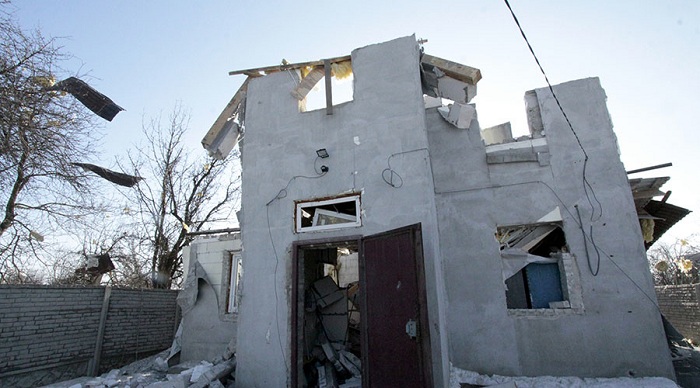The comment comes after days of intense hostilities around the town of Avdeevka, which is located close to the disengagement line between pro-Kiev forces and the rebels in the east. The spike of violence is the largest in months.
Kiev blames the escalation on the rebels. The development came amid Ukrainian President Petro Poroshenko’s visit to Germany, which he cut short, according to his office, to respond to the Avdeevka crisis.
A report in the German newspaper Süddeutsche Zeitung said Berlin is increasingly laying responsibility for such incidents on Kiev. The latest tensions may have been provoked by the Poroshenko administration, which is concerned with a possible lifting of anti-Russian sanctions by US President Donald Trump, some figures in the German government believe, according to the newspaper.
This reasoning received a nod of approval from Russian Foreign Minister Sergey Lavrov, who said that even “the biased German press acknowledged that Poroshenko was behind it.”
“Everybody knows who is driving the situation in Ukraine into a dead end, and the latest provocations by the Kiev regime… confirm this,” Lavrov told journalists after a Russian-Arab economic forum in Abu Dhabi, the UAE. “It is on his conscience, but he signed the Minsk agreement and is obliged to follow it.”
Meanwhile, the US State Department apparently contradicted Kiev’s casualty reports, which said about a dozen Ukrainian soldiers had been killed over the past few days. Washington’s statement denouncing the violence and calling for de-escalation stated that “the fighting has caused dozens of Ukrainian military casualties.”
The conflict in eastern Ukraine was ignited in 2014, when people in two regions rejected a nationalist-driven armed coup in Kiev, which imposed a new government hostile to Moscow. The new authorities launched a military crackdown, which led to a bloody conflict that has claimed over 10,000 lives.
A ceasefire and roadmap for reconciliation were negotiated in 2015 with the help of Russia, France and Germany. The so-called Minsk agreement imposed an OSCE-monitored withdrawal of heavy weapons, which was supposed to be followed by a blanket amnesty for the rebels, a constitutional reform granting the rebellious regions greater autonomy, local elections, and finally the return of sovereignty over the regions to Kiev.
The deal never progressed further than the withdrawal of heavy weapons, however, and even that failed to stem the violence fully, only curbing it somewhat. OSCE monitors regularly report violations of the truce by both sides of the conflict.
Over the past several months the pro-Kiev forces have been conducting what is called a “creeping offensive” along the disengagement line – moving troops and weapons forward into the so-called “grey zone.” The rebels see such actions as provocative, especially since on several occasions the Ukrainian forces crossed the line and tried to capture territory beyond it. There are also disputes over where exactly the disengagement line should be in some areas.
In his statement to the media, Pavlovsky justified the advancement, saying that the “entire Donbass is Ukrainian territory.” He did not comment on whether such actions comply with the Minsk agreement.
/RT/
More about:

























-1744880337.jpg&h=190&w=280&zc=1&q=100)






















